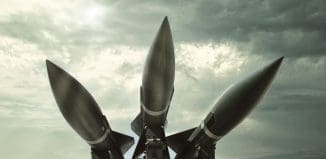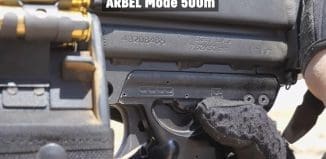Why the West Is Dismissing Russia, And Why It Really Shouldn’t
This post is also available in:  עברית (Hebrew)
עברית (Hebrew)
Konstantin Bodragin
It has almost become a truism that the Russian military is crumbling, inept, and bumbling. Recent activity, however, paints a picture of an army fast modernising, adaptable, and capable. “Russia has surprised the West with its military capacity twice in succession,” writes Gustav Gressel in a recent policy brief for the European Council on Foreign Relations. “First, in Ukraine, the Russian armed forces overturned Western assumptions about their inefficiency with a swift and coordinated ‘hybrid war,’ combining subversion and infiltration with troop deployment to gain an early military advantage.” Then, in its first military foray into the international arena proper since the collapse of the Soviet Union, Russia “made the United States look hesitant and indecisive.” While “the long-term impact of Russia’s gambit remains uncertain,” what is now undisputable is that the old assumptions about the waning power of Russia’s military no longer stand under scrutiny.
The West has misread the considerable efforts Russia put into reforming and modernising its armed forces, to potential disastrous ramification. While at present Russia is yet in no position to throw its weight around Europe, some of its goals certainly lie in that direction. Myopia in this case is a luxury the West can scant afford.
Focusing on shortcomings in equipment, an area of notable excellence and superiority for the American and European militaries, has led the West to underestimate Russian military capabilities. “Russia has improved the professionalism, readiness, and effectiveness of its military personnel and armed forces,” Gressel writes. It has developed the ability “to react quickly and strike without warning,” giving Russia the ability to overwhelm any of its individual neighbours. In general, “Europe’s military advantage over Russia is undermined by low combat-readiness, understaffing, and the need to coordinate between countries.” All this makes for a Europe unable to effectively respond to Russian aggression, as the Ukraine crisis demonstrated.
Russian military reforms undertaken since 2008, after the muddled Georgian campaign, have been the most potent and rapid since the 1930s. Russia planned a tri-stage reform process. Personnel education and slimming down on conscripts in the first stage, and streamlining the command structure in the second, brought about a more professional and combat-ready army. Western analysts focused on the last, as yet incomplete stage of rearmament and equipment modernisation, overlooking the successes of the first two phases. The crux of the matter is that “Moscow does not necessarily need the latest cutting-edge defence technology” to intervene in Russia’s neighbourhood, or in theatres with less developed rivals.
Western critiques who claim that Russia holds outdated concepts of warfare entirely miss the mark that “Russia prepares for war in an entirely different way than the West.” Russian analysis sees the distinction between civilian and military segments of society disappearing, and so calls for a “multi-pronged drive to overwhelm, subvert, and subdue the opposing society that is much more ruthless and effective than the West’s ‘comprehensive approach.’”
Case in point, one of the more interesting characteristics of Russian reforms is the drive for paramilitary and non-military forces. Some 170,000 men in the Russian Federation are at the disposal of the Ministry of Interior in trained paramilitary units, ready to tackle terrorism and border violations, and to quell civil unrest. These units play a dual part. They free up the military proper from preparation for so-called “soft threats,” and would play a vital role if Moscow invaded one of its neighbours.
A second oft-ignored facet of Russian war-preparations is the insertion of human intelligence assets into the command structure of rivals in near proximity. Aiming to counterbalance Western superiority in intelligence technology, Russia embeds friendly agents in the military, political, social, and business assets of neighbouring countries. Moscow weakened Ukraine’s economy in preparation for the war by harming select entrepreneurs, while bolstering friendly businessmen; cutting imports; and, undermining European support for Ukraine. Simultaneously, Russia propped up quasi-state structures and proxy actors, which allowed it to quickly establish control of annexed Crimea. Armed intervention came only as the climax of a protracted campaign of preparation.
Moscow has developed an array of means, strategies, and tactics to undermine Western technological superiority. These have undeniably proven effective in Russia’s near-abroad, and while it lacks the strategic infrastructure in remote spheres of influence, Russian military activity in Syria shows that it is prepared to project its power far afield. While the success of Moscow’s Syrian campaign still hangs in the balance, Western powers would do well to reassess the strength of the eastern Bear. If and when Russia’s goals shift westward, Europe must be prepared with a unified and decisive response.






























